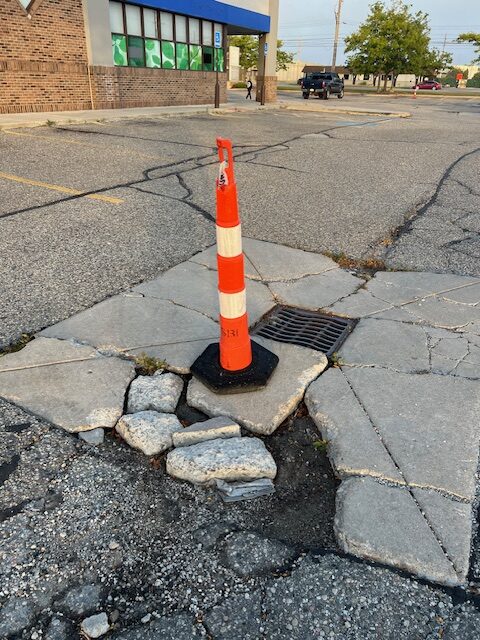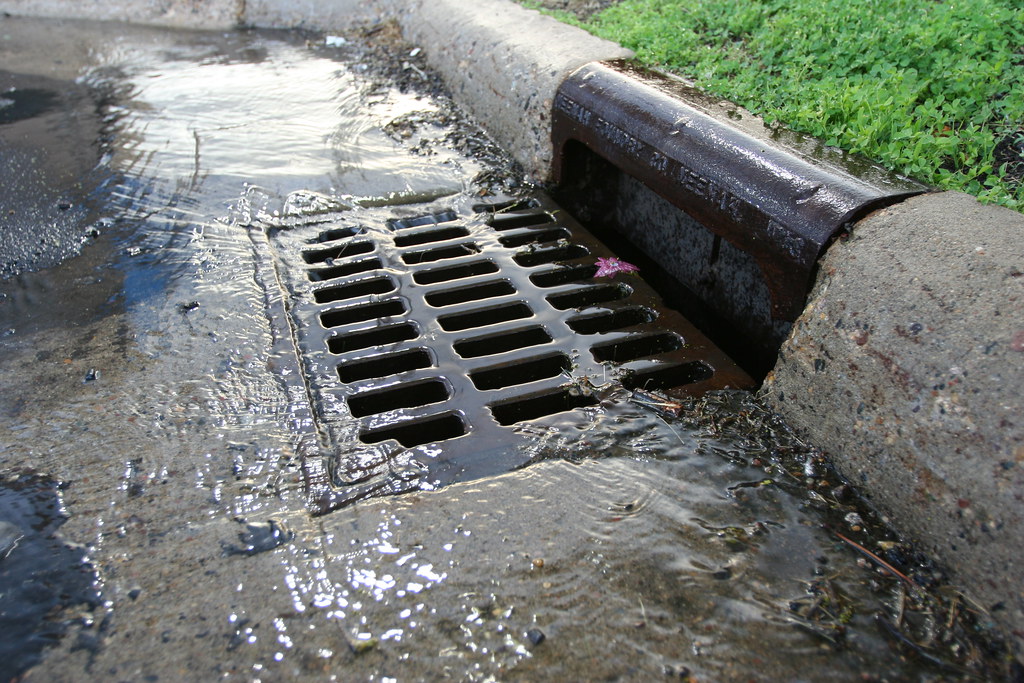Storm Drain Servicesin Richmond MI
Storm Drain Solutions for Effective Water Management
We Are Locally Owned & Operated For Over 37 Years
Contact Us Today!
We Serve Businesses In And Around The Following Cities:
About Storm Drain Services
Understanding the Importance of a Functional Storm Drain in the City of Richmond
The necessity of a robust storm drainage system cannot be overstated for any commercial property located in a bustling city, especially Richmond, prone to heavy seasonal rainfall. An efficient storm drain facilitates organized discharge of rainwater, mitigating the risks of water damage and flooding. It plays an integral role in maintaining the safety and functionality of a commercial space. This comprehensive guide will discuss the process, real-world applications, and the numerous benefits of maintaining an effective storm drain system in Richmond.
The Operational Mechanics of a Storm Drain
The storm drain essentially comprises several components such as a drain basin, storm drain pipes, storm drain grates, and the storm drain catch basin. This basic structure ensures the smooth flow of stormwater into the municipal separate storm sewer system. The storm drain catch basin typically works as the entry point for stormwater. The basin is covered by a storm drain grate to prevent debris from entering the system. The water then flows through the storm drain pipes and is finally released into the storm sewer. To provide an efficient flow, routine servicing like storm drain cleanout and storm sewer cleanout are necessary.
Richmond-Specific Concerns and Solutions
Commercial properties in Richmond routinely face issues related to its local climatology. During the rainy season, storm sewer systems can often be overwhelmed leading to unpleasant flooding and property damage. Local concerns also include a city storm drain in properties’ backyard or a storm drain street often getting clogged due to foliage and other kinds of city-specific litter. In situations like these, a storm drain pump can be utilized to remove excess water. Moreover, regular maintenance from storm drain contractors or storm drain cleaning contractors can provide efficient solutions to ensure uninterrupted function of these vital systems.
Benefits of Efficient Stormwater Drainage
Efficient stormwater drainage offers numerous benefits for commercial properties. Firstly, it dramatically reduces the chances of waterlogging, thereby mitigating damage to commercial property and landscape. An effective system like the precast concrete storm drain ensures flood prevention during heavy rainfall. Moreover, storm drain repair or replacing a concrete storm drain with a precast storm drain can significantly boost the system’s longevity, reducing the costs of future repairs. Your expert partner in this regard can be D&J Contracting, known for their proficiency in installing and maintaining storm drains.
Real-world Applications and Considerations
Consider a commercial parking area, for instance. During peak rainy season, the lot can quickly get inundated, disrupting business and creating safety risks. Installing a parking lot storm drain with a network of underground stormwater drainage solutions can quickly resolve this problem. Also, storm drain grates ensure debris doesn’t clog the system. D&J Contracting can help design and implement stormwater channels for maximum efficiency.
In the event of clogging, services like hydro jet storm drain cleaning can thoroughly clean the system, ensuring optimal flow. Notably, a well-designed stormwater sewer system with features like storm drain manhole and storm sewer manhole for ease of access is a boon for smooth maintenance and quick repairs.
D&J Contracting – Your Companion for Storm Drain Maintenance
D&J Contracting’s vast experience in this field makes them a reliable partner in maintaining the storm drainage system for your commercial property. They offer a wide range of services including storm drain clogged cleanout, storm sewer repair, jetting storm drain, and more. Storm drain maintenance is a complex task best left to professionals like D&J Contracting.
In conclusion, the importance of a well-installed and maintained storm drain in a city like Richmond cannot be overemphasized. Commercial properties have to deal with numerous local challenges related to the city’s climatology and geography, which make storm drain management a crucial aspect of building maintenance. With professionals like D&J Contracting fulfilling your storm drain related requirements, you can focus on your business without worrying about waterlogging and property damage during the heavy rain season. Remember, an efficient storm drain system is not just an infrastructure requirement, but an investment into the safety, functionality, and longevity of your commercial property.
Storm Drain Services Gallery


Call Us Today to receive your Free Quote for
Storm Drain in Richmond
Serving: Richmond, Michigan

About Richmond, Michigan
In 1835, Erastus Beebe set out with two brothers and several other people to create a new city out of a wilderness area in Michigan. He founded Beebe’s Corners, which in 1878 agreed to join with the two nearest neighboring communities of Ridgeway and Cooper Town to form the village of Richmond. In 1879, the Michigan Legislature officially created the village charter. In 1989, the city annexed the Muttonville area of Lenox Township, parts of Richmond Township in Macomb County, and part of Casco and Columbus Townships in St. Clair County.
Richmond is 38 miles (61 km) northeast of downtown Detroit, 16 miles (26 km) northeast of Mount Clemens, the Macomb county seat, and 26 miles (42 km) southwest of Port Huron, the St. Clair county seat. Highway M-19 passes through Richmond as its Main Street, leading north 6 miles (10 km) to Memphis and south 7 miles (11 km) to New Haven.
The city is adjacent to Richmond Township and Lenox Township in Macomb County, although it is administratively autonomous. It is also adjacent to St. Clair County’s Columbus Township and Casco Township.
According to the United States Census Bureau, Richmond has a total area of 2.92 square miles (7.56 km), of which 2.89 square miles (7.49 km) are land and 0.03 square miles (0.08 km), or 1.16%, are water.
- Muttonville is in the southeastern part of the city on the boundary with adjacent Casco Township in St. Clair County at 42°47′47″N 82°44′07″W / 42.79639°N 82.73528°W. It was so named because it was the principal slaughterhouse for what was predominantly a sheep raising area.
| Census | Pop. | Note | %± |
|---|---|---|---|
| 1880 | 750 | — | |
| 1890 | 1,074 | 43.2% | |
| 1900 | 1,133 | 5.5% | |
| 1910 | 1,277 | 12.7% | |
| 1920 | 1,303 | 2.0% | |
| 1930 | 1,493 | 14.6% | |
| 1940 | 1,722 | 15.3% | |
| 1950 | 2,025 | 17.6% | |
| 1960 | 2,667 | 31.7% | |
| 1970 | 3,234 | 21.3% | |
| 1980 | 3,536 | 9.3% | |
| 1990 | 4,141 | 17.1% | |
| 2000 | 4,897 | 18.3% | |
| 2010 | 5,735 | 17.1% | |
| 2020 | 5,878 | 2.5% | |
| U.S. Decennial Census | |||
As of the census of 2010, there were 5,735 people living in the city. The population density was 2,012.3 inhabitants per square mile (777.0/km). There were 2,479 housing units at an average density of 869.8 per square mile (335.8/km). The racial makeup of the city was 94.2% White, 1.0% African American, 0.3% Native American, 0.2% Asian, 0.2% Pacific Islander, 2.6% from other races, and 1.5% from two or more races. Hispanic or Latino of any race were 4.6% of the population.
As of the census of 2000, there were 4,897 people, 1,977 households, and 1,332 families living in the city. The population density was 1,691.6 inhabitants per square mile (653.1/km). There were 2,062 housing units at an average density of 712.3 per square mile (275.0/km). The racial makeup of the city was 95.43% White, 0.25% African American, 0.31% Native American, 0.82% Asian, 0.18% Pacific Islander, 1.86% from other races, and 1.16% from two or more races. Hispanic or Latino of any race were 4.74% of the population.
There were 1,977 households, out of which 31.9% had children under the age of 18 living with them, 53.1% were married couples living together, 10.1% had a female householder with no husband present, and 32.6% were non-families. 27.8% of all households were made up of sole individuals and 11.0% had someone living alone who was 65 years of age or older. The average household size was 2.45 and the average family size was 2.99.
In the city the population was spread out, with 24.2% under the age of 18, 9.0% from 18 to 24, 30.8% from 25 to 44, 22.7% from 45 to 64, and 13.3% who were 65 years of age or older. The median age was 36 years. For every 100 females there were 92.1 males. For every 100 females age 18 and over, there were 89.6 males.
The median income for a household in the city was $43,378, and the median income for a family was $57,917. Males had a median income of $41,519 versus $26,445 for females. The per capita income for the city was $21,384. About 4.8% of families and 6.2% of the population were below the poverty line, including 7.2% of those under age 18 and 5.4% of those age 65 or over.
The Richmond Community School District covers areas of Richmond, Lenox, Casco, and Columbus townships. It includes an elementary, middle, and high school. In 2002, it had approximately 2,000 full-time students and a teacher/student ratio of 1:20. St. Augustine is a Catholic Elementary School in the city and St. Peter’s is a Lutheran Elementary School in the city.
Call Us Today to receive your Free Quote for
Storm Drain in Richmond
Related Services in Richmond, Michigan
We Serve Businesses In The Following Zip Codes:
48007, 48015, 48021, 48026, 48035, 48036, 48038, 48042, 48043, 48044, 48045, 48046, 48047, 48048, 48050, 48051, 48066, 48071, 48080, 48081, 48082, 48083, 48084, 48085, 48088, 48089, 48090, 48091, 48092, 48093, 48098, 48099, 48225, 48230, 48236, 48310, 48311, 48312, 48313, 48314, 48315, 48316, 48317, 48318, 48397